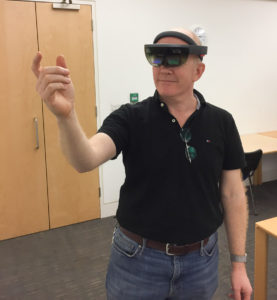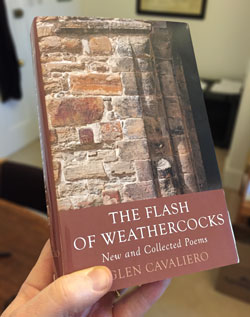In order to progress, modern society should be treating ruined entrepreneurs in the same way we honor dead soldiers, perhaps not with as much honor, but using the exact same logic. . . .
— Nassim Taleb
In order to progress, modern society should be treating ruined entrepreneurs in the same way we honor dead soldiers, perhaps not with as much honor, but using the exact same logic. . . .
— Nassim Taleb
Somehow, I hadn’t come across Conway’s Law until today, despite the fact that Melvin Conway came up with it when I was still wearing nappies.
Conway’s Law states that:
Organizations which design systems are constrained to produce designs which are copies of the communication structures of these organizations.
Or, as it is often more briefly stated,
Any piece of software reflects the organizational structure that produced it.
If you’ve worked on software of any scale, you will know how true this is! Another nice form is:
If you have four groups working on a compiler, you’ll get a 4-pass compiler.
Brilliant stuff. More information on Conway’s Law and some of its corollaries here.
 I got to have a good play with a Microsoft Hololens today. This is an augmented reality headset: you get to see your real-world surroundings, but with computer-generated overlays.
I got to have a good play with a Microsoft Hololens today. This is an augmented reality headset: you get to see your real-world surroundings, but with computer-generated overlays.
If you remember the holographic chess game in Star Wars, you’ve got the right idea, but the projections can be big and all around you, as well as small and on the table.
It’s a very clever combination of a bright, retina-projecting display, the Kinect 3D-sensing technology which builds up a map of the room, good accelerometers and supporting hardware so there’s no noticeable lag, all built into a computer that is comfortable to wear and requires no attached cables.
This isn’t primarily for games: imagine an architect walking around a building and being able to ‘see’ the pipes and wires behind the walls. A surgeon being able to walk around the 3D MRI scan of their patient and view it from different angles, possibly actually projected onto the patient’s body in the operating theatre. A remote technician being able to guide you through disassembling, fixing and reassembling some device, because they can see what you see, and point out things right in front of you… the possibilities are almost endless.
This is version 1.0, of course, and it has some limitations — it won’t work very well outside, for example, because of the brightness of the ambient light and the difficulty of capturing a good model of the surrounding world. It’s available in restricted quantities, for about three thousand pounds apiece. The projected images only cover a limited field of your view: they are good and clear when you’re looking at them, but you don’t see them in your peripheral vision. And there are some things for which a VR headset is clearly superior, especially if you want to replace your existing environment completely.
Despite all of this, it is great fun, and exceedingly well engineered, and the inclusion of the Kinect technology gives it a real edge over things like Google Glass, and gets rid of the problem of walking into walls and tripping over furniture that is an inconvenience of full VR headsets. Overall, it’s really quite impressive, and I predict that we’ll see quite a lot more of this in future.
Poetry is language at its most distilled and most powerful. — Rita Dove
A good friend of ours, Glen Cavaliero, is a poet. An exceedingly good one, in fact, and highly-regarded among the cognoscenti. Over the decades, in addition to his academic books, he has published numerous slim poetry volumes but, now approaching his ninetieth birthday, he wanted to gather them into a more substantial collection; not quite a ‘complete works’, but something of that ilk.
Glen, however, owns no technology more advanced than a typewriter, and so one of our side-projects over the last couple of years has been to help him with the process of self-publishing this 500-page masterpiece, which finally saw the light of day towards the end of 2016.
 If you or any of your friends are seriously interested in good poetry, I recommend The Flash of Weathercocks. Some of the poems are dark and gritty, some light and cheery, some funny, some melancholy, some deeply thoughtful, some highly accessible, others filled with subtle literary allusions. Very few of them are easy reading. But all of them are expertly crafted by a master of the language.
If you or any of your friends are seriously interested in good poetry, I recommend The Flash of Weathercocks. Some of the poems are dark and gritty, some light and cheery, some funny, some melancholy, some deeply thoughtful, some highly accessible, others filled with subtle literary allusions. Very few of them are easy reading. But all of them are expertly crafted by a master of the language.
You can find it in:
Now, I’ve learned a few things in this process. One is that poetry is much harder to typeset than prose: even trying to ensure that page-breaks come in sensible places in the middle of verses was quite a challenge for the publisher, but to add to this, for many of Glen’s pieces, the careful indentation of each line is important…
The other revelation for me was a clearer understanding of the effect Amazon has on the publishing world, especially the self-publishing world. I’m a huge fan of Amazon in general, but the margin they take on books is pretty severe! In our case, the publisher charges 15%, so when people buy from the publisher’s site, the author gets 85% of the cover price to offset against his or her up-front printing costs. That is all very reasonable.
Amazon, however, charges a further 60%, so the author gets 25%. Or, to put it another way, once you’ve established the printing costs, you need to set your cover price to four times that amount if you are just to break even on Amazon sales. Since poetry, by its very nature, tends to involve small print runs with a high per-unit cost, this would make the cover price prohibitive for Glen’s book. And so, in fact, we had to pick a cover price where he will lose money on every sale through Amazon, and make money if people buy from the publisher or directly from him.
I created a spreadsheet where we could estimate, for various values of X, that X times as many people are likely to buy from Amazon as from elsewhere, and settled on a price where he should just about break even overall. Our job now is to publicise the non-Amazon links as much as possible!
Above all, it’s clear to me that, even if you have tributes from the likes of Sir John Betjeman on your back cover, poetry is definitely something you create for love, rather than for money!
But I do think this is a significant work of literature, and since there’s no way I’m ever going to produce one of those myself, I’m delighted to have been at least instrumental in helping it come into existence!
This was in the Olden Days, when the Romans were top nation on account of their classical education…
— 1066 and All That
My curious mix of state and private education left me, to paraphrase Ben Jonson, with almost zero Latin and less Greek. Perhaps because of this, although I can be something of a language pedant, I would normally refer to, say, ‘the next item on the agenda’, and would only talk about ‘the next agendum’ in a spirit of playful fun. ‘Agendas’, however, would make me wince. I do know, deep down, that ‘agenda’ is a plural.
Similarly, even though I work with rather a large amount of data, I have almost never used the word ‘datum’ except in one of its specialist meanings. Indeed, for most science, if you have little enough data to think of each item individually, then you probably don’t have enough to draw useful conclusions!
And so, like most people, I think of data rather as a fluid substance, to be measured by the bucket-load — megabytes of data, like pints of milk or glasses of wine — rather than as a plural. Few people would say ‘there are a dozen data in this table’ unless they were classicists, who would never actually have to deal with it. So you’ll note that in the previous paragraph I said “if you have little enough data”. If I had instead opted for “if you have few enough data”, you would probably have assumed that I was making a point, one that wasn’t actually to do with the data at all.
Nonetheless, etymology has always intrigued me, and I love the fact that Norman Gray can write a long, sensible and interesting discussion of this very topic, which I can read over breakfast before going off to analyse a datum or two…
© Copyright Quentin Stafford-Fraser
Recent Comments